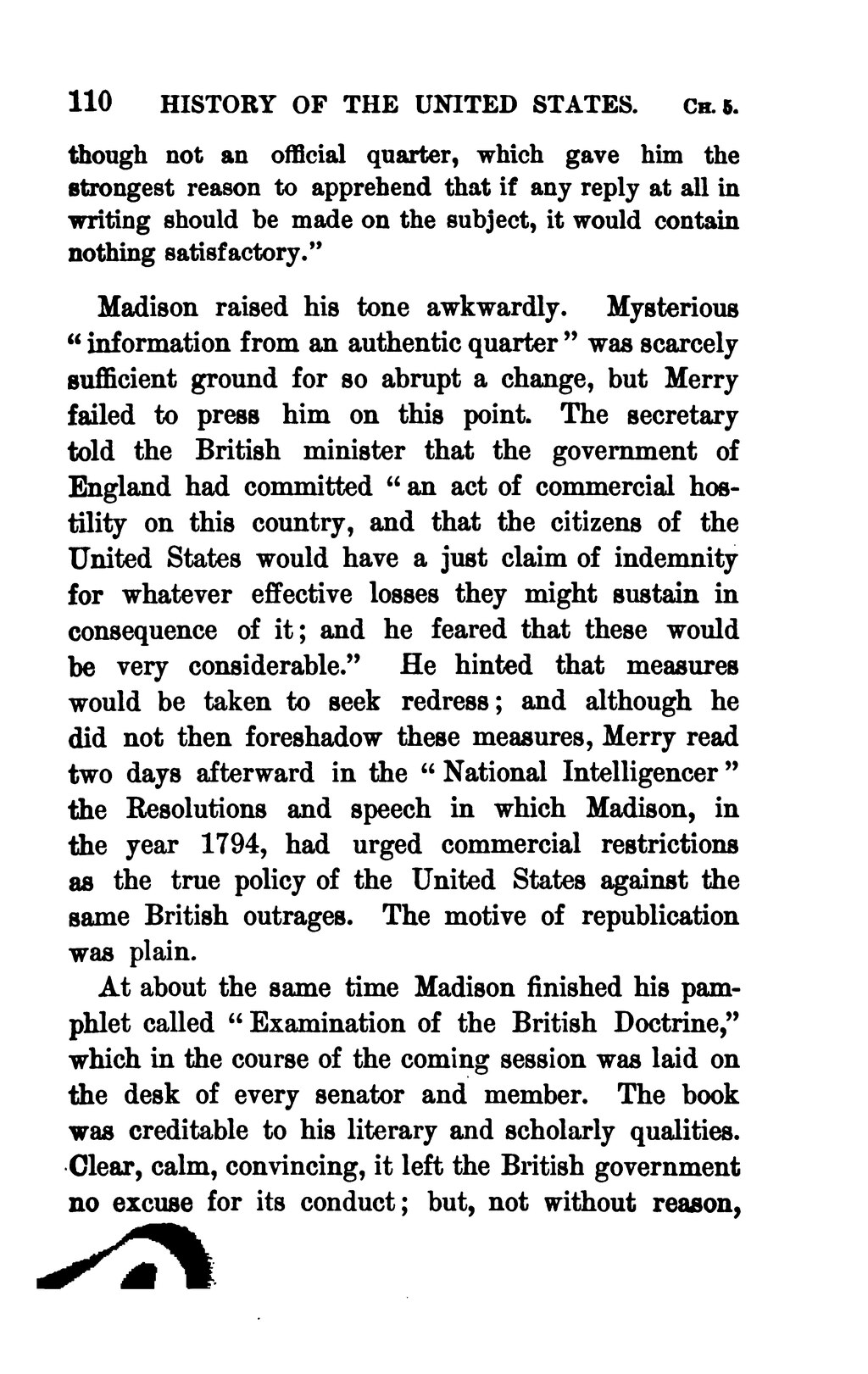though not an official quarter, which gave him the strongest reason to apprehend that if any reply at all in writing should be made on the subject, it would contain nothing satisfactory."
Madison raised his tone awkwardly. Mysterious "information from an authentic quarter" was scarcely sufficient ground for so abrupt a change, but Merry failed to press him on this point. The secretary told the British minister that the government of England had committed "an act of commercial hostility on this country, and that the citizens of the United States would have a just claim of indemnity for whatever effective losses they might sustain in consequence of it; and he feared that these would be very considerable." He hinted that measures would be taken to seek redress; and although he did not then foreshadow these measures, Merry read two days afterward in the "National Intelligencer" the Resolutions and speech in which Madison, in the year 1794, had urged commercial restrictions as the true policy of the United States against the same British outrages. The motive of republication was plain.
At about the same time Madison finished his pamphlet called "Examination of the British Doctrine," which in the course of the coming session was laid on the desk of every senator and member. The book was creditable to his literary and scholarly qualities. Clear, calm, convincing, it left the British government no excuse for its conduct; but, not without reason,
